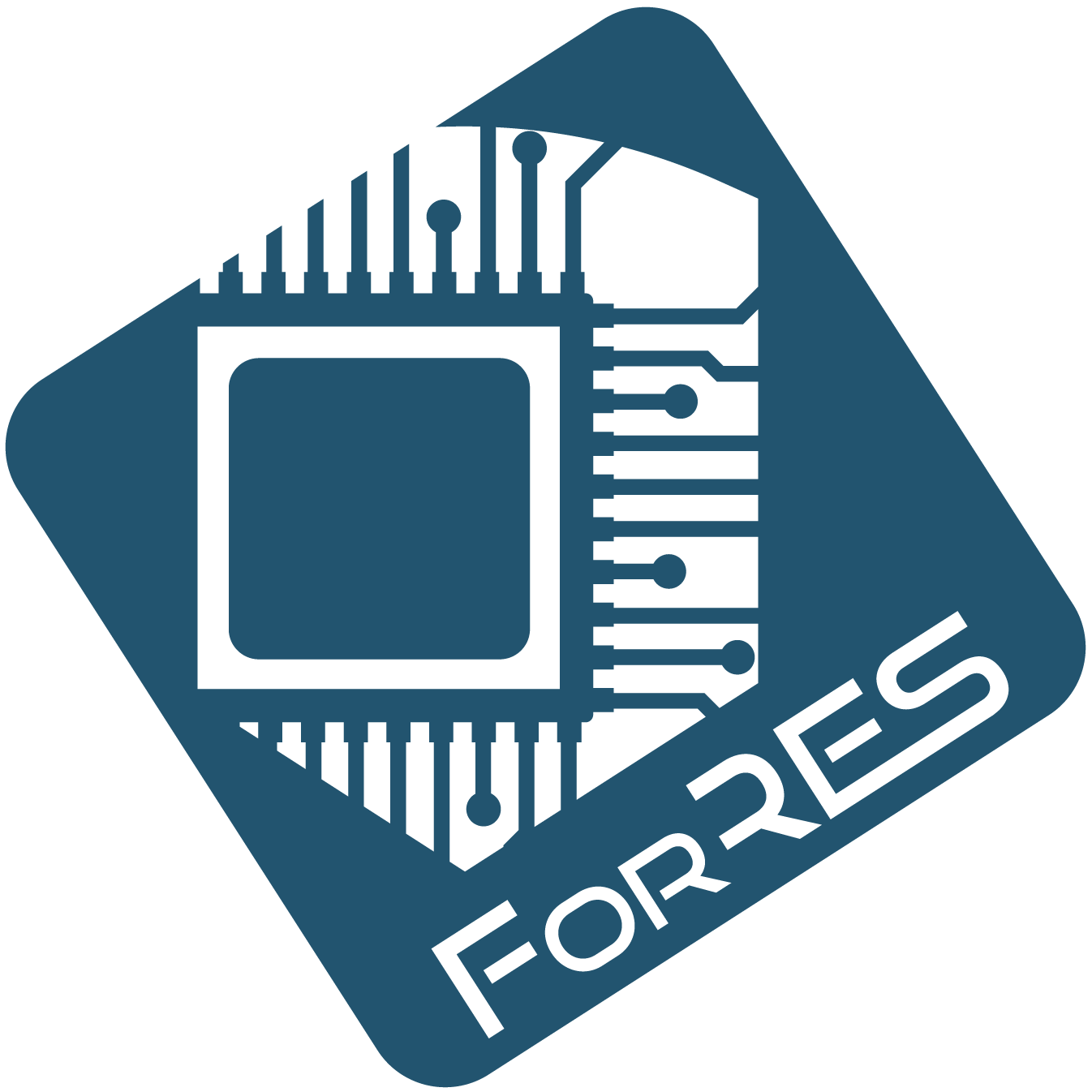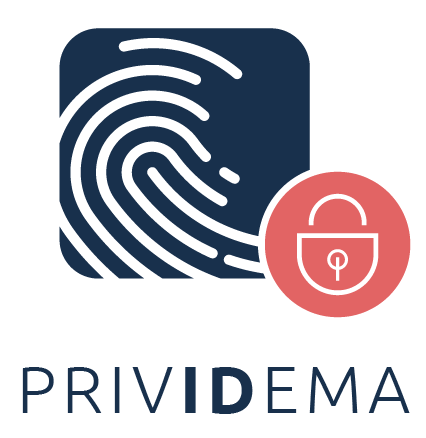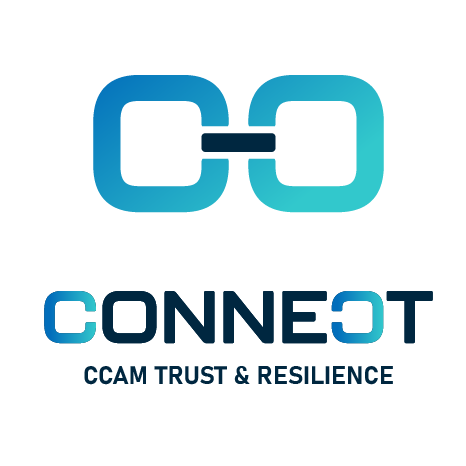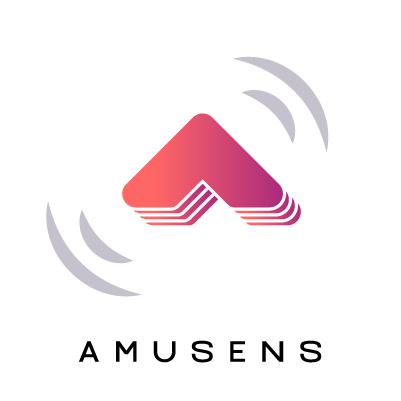Results & Downloads
Factsheet #2: SNS JU
The Smart Networks and Services Joint Undertaking (SNS JU) is a Public-Private Partnership acting as a pivotal initiative within the European Union. SNS JU was designed to drive forward the research, innovation, and deployment of advanced network technologies, specifically focusing on 5G and future 6G networks and services. 6GTandem is part fo the SNS JU.
March 04, 2025

Factsheet #2: SNS JU
Download Factsheet #1: 6G
6G represents the next evolutionary step in wireless technology, succeeding 5. The 6GTandem project aims to advance the combined low-frequency and sub-THz distributed MIMO system to enable new applications that require an unprecedented combination of performance factors.
March 04, 2025

Download Factsheet #1: 6G
ORSHIN Newsletter Issue 04
The 4th issue of the newsletter has been released. This issue reveals the latest progress and results and highlights key activities. It further provides an overview of the most recent publications and video interviews and provides an outlook of the upcoming activities.
January 28, 2025

ORSHIN Newsletter Issue 04
Publication in Journal “IEEE Journal of Selected Topics in Signal Processing (Early Access)”
Joint Localization, Synchronization and Mapping via Phase-Coherent Distributed Arrays – article by Alessio Fascista, Benjamin Deutschmann, Musa Furkan Keskin, Thomas Wilding, Angelo Coluccia, Klaus Witrisal, Erik Leitinger, Gonzalo Seco-Granados and Henk Wymeersch
January 23, 2025

Publication in Journal “IEEE Journal of Selected Topics in Signal Processing (Early Access)”
Videos
PRIVIDEMA - Mariya Georgieva (Technical Lead)
Mariya Georgieva (Technical Lead) is talking at the Kick-Off / technichal meeting in Paris about the PRIVIDEMA Project. Find out more about the project: https://prividema.eu/ Funded by the European Union under Grant Agreement No. 101167964. Views and opinions expressed are however those of the author(s) only and do not necessarily reflect those of the European Union or the European Cybersecurity Industrial, Technology and Research Competence Centre (ECCC). Neither the European Union nor the granting authority ECCC can be held responsible for them.
PRIVIDEMA - Oana Stan (CEA)
Oana Stan (CEA) is talking at the Kick-Off / technichal meeting in Paris about the PRIVIDEMA Project. Find out more about the project: https://prividema.eu/ Funded by the European Union under Grant Agreement No. 101167964. Views and opinions expressed are however those of the author(s) only and do not necessarily reflect those of the European Union or the European Cybersecurity Industrial, Technology and Research Competence Centre (ECCC). Neither the European Union nor the granting authority ECCC can be held responsible for them.
REINDEER - Testbeds and simulators overview
Find out more about this project: https://reindeer-project.eu/ This video may be downloaded, shared, embedded and reposted across various platforms. The REINDEER project has received funding from the European Union’s Horizon 2020 research and innovation programme under grant agreement No.101013425.
REINDEER - Demostration Video - Experiment 5
Find out more about this project: https://reindeer-project.eu/ This video may be downloaded, shared, embedded and reposted across various platforms. The REINDEER project has received funding from the European Union’s Horizon 2020 research and innovation programme under grant agreement No.101013425.
REINDEER - Demostration Video - Experiment 4c
Find out more about this project: https://reindeer-project.eu/ This video may be downloaded, shared, embedded and reposted across various platforms. The REINDEER project has received funding from the European Union’s Horizon 2020 research and innovation programme under grant agreement No.101013425.
REINDEER - Demostration Video - Experiment 4b
Find out more about this project: https://reindeer-project.eu/ This video may be downloaded, shared, embedded and reposted across various platforms. The REINDEER project has received funding from the European Union’s Horizon 2020 research and innovation programme under grant agreement No.101013425.
REINDEER - Demostration Video - Experiment 3b
Find out more about this project: https://reindeer-project.eu/ This video may be downloaded, shared, embedded and reposted across various platforms. The REINDEER project has received funding from the European Union’s Horizon 2020 research and innovation programme under grant agreement No.101013425.
REINDEER - Demostration Video - Experiment 3a
Find out more about this project: https://reindeer-project.eu/ This video may be downloaded, shared, embedded and reposted across various platforms. The REINDEER project has received funding from the European Union’s Horizon 2020 research and innovation programme under grant agreement No.101013425.
REINDEER - Demostration Video - Experiment 2
Find out more about this project: https://reindeer-project.eu/ This video may be downloaded, shared, embedded and reposted across various platforms. The REINDEER project has received funding from the European Union’s Horizon 2020 research and innovation programme under grant agreement No.101013425.
REINDEER - Demostration Video - Experiment 1
Find out more about this project: https://reindeer-project.eu/ This video may be downloaded, shared, embedded and reposted across various platforms. The REINDEER project has received funding from the European Union’s Horizon 2020 research and innovation programme under grant agreement No.101013425.
PRIVIDEMA - Privacy preserving identity management for digital wallet and secure data sharing an...
The PRIVIDEMA project envisions a future of robust, privacy-preserving technologies to enhance cybersecurity and protect personal data across Europe. With increasing cyber threats and vulnerabilities, especially targeting small businesses and individuals, PRIVIDEMA aims to tackle critical challenges in identity management and cyber threat intelligence. By developing secure, user-friendly solutions for biometric-based authentication and privacy-preserving cyber threat data sharing, the project addresses the EU’s cybersecurity goals, including the Cyber Resilience Act and NIS2 Directive. Through advanced technologies like homomorphic encryption, federated learning, and differential privacy, PRIVIDEMA strengthens digital infrastructure, supports European digital sovereignty, and enhances resilience against cyberattacks, ensuring a secure digital future for European citizens and organizations. More information: https://prividema.eu/ Funded by the European Union under Grant Agreement No. 101167964. Views and opinions expressed are however those of the author(s) only and do not necessarily reflect those of the European Union or the European Cybersecurity Industrial, Technology and Research Competence Centre (ECCC). Neither the European Union nor the granting authority ECCC can be held responsible for them.
AMUSENS - Multi-pixel gas sensor platform for a wide range of appliance and consumer markets
Gas sensors are crucial in the personal and industrial monitoring to analyze personal exposure to air pollutants or to critical gases, to control product quality such as in the food industry, and in health care by analyzing gases from human body. These applications require miniaturized low power and low-cost gas sensors with good gas selectivity to be integrated in personal devices, in product packaging or in widely distributed sensor networks. AMUSENS aims at developing a gas sensor platform with flexible selectivity to different gas environments by combining a multi-pixel approach and artificial intelligence to adapt the data analysis to the targeted applications. For more information visit: https://amusens.eu/ Funded by the European Union. Views and opinions expressed are however those of the author(s) only and do not necessarily reflect those of the European Union. Neither the European Union nor the granting authority can be held responsible for them.
MILADO - Multiwavelength Laser for fast Diagnostic in Biomedical and Manufacturing Applications
The MILADO project aims to revolutionize mid-infrared (MIR) laser technology by developing cost-effective, high-volume manufacturing processes for Quantum Cascade Lasers (QCLs). These lasers are essential for various spectroscopic applications due to their compactness, high power spectral density, and broad spectral coverage up to 12 µm. However, their high costs limit market penetration. MILADO merges "group III-V" and silicon photonics to create affordable, compact MIR light sources by using established complementary metal-oxide-semiconductor (CMOS) processes. This shift from expensive, complex craft production to scalable manufacturing could reduce QCL prices from thousands to tens of euros. more information: https://milado.eu/ Funded by the European Union. Views and opinions expressed are however those of the author(s) only and do not necessarily reflect those of the European Union. Neither the European Union nor the granting authority can be held responsible for them.
REINDEER - UseCaseVideo 03 (human-machine interaction in care environments, hospitals and assist...
The REINDEER project is working on a cell free massive MIMO approach for such 6G applications, called “RadioWeaves”. The project partners have defined 13 use cases to better understand the requirements of the future. This video is about the first cluster of use cases, focusing on human-machine interaction in care environments, hospitals and assisted living. Find out more about this project: https://reindeer-project.eu/ This video may be downloaded, shared, embedded and reposted across various platforms. The REINDEER project has received funding from the European Union’s Horizon 2020 research and innovation programme under grant agreement No. 101013425. You can turn on/off the subtitles (captions) by clicking on the "CC" button on the bottom right side of this video.
REINDEER - UseCaseVideo 04 (home automation and smart home systems)
The REINDEER project is working on a cell free massive MIMO approach for such 6G applications, called “RadioWeaves”. The project partners have defined 13 use cases to better understand the requirements of the future. This video is about the first cluster of use cases, focusing on future factories, warehouses, and logistics. Find out more about this project: https://reindeer-project.eu/ This video may be downloaded, shared, embedded and reposted across various platforms. The REINDEER project has received funding from the European Union’s Horizon 2020 research and innovation programme under grant agreement No. 101013425. You can turn on/off the subtitles (captions) by clicking on the "CC" button on the bottom right side of this video.
Podcasts
iPC (4) H2020 Project: About why the future paediatric cancer treatment is in personalization
In this episode we welcome Davide Cirillo. He represents the Barcelona Supercomputing Center, a partner in iPC which, by the way, stands for Indivualized Peadiatric Cure. We talk about how explainable AI and machine learning is the key to tailor treatments for kids while minimizing the risks. The iPC project has received funding from the European Union’s Horizon 2020 research and innovation programme under grant agreement No. 826121.
iPC (4) H2020 Project: About why the future paediatric cancer treatment is in personalization
iPC (4) H2020 Project: About why the future paediatric cancer treatment is in personalization
iPC (3) H2020 Project: How algorithms can improve treatment for children with cancer
In this episode we talk with Pieter Mestdagh, principal investigator at the Cancer Research Insitute Ghent, who is a project partner in iPC. He shares his teams methods with us for a better understanding of their motives and how algorithms can improve effective treatment for children with cancer. The iPC project has received funding from the European Union’s Horizon 2020 research and innovation programme under grant agreement No. 826121.
iPC (3) H2020 Project: How algorithms can improve treatment for children with cancer
iPC (3) H2020 Project: How algorithms can improve treatment for children with cancer
REINDEER (2) H2020 Project: A closer look at RadioWeaves Technology and how it might be used
In this Episode, we will speak with Erik Larsson, Professor and Head of the Division for Communication Systems in the Department of Electrical Engineering at Linköping University, about how the REINDEER H2020 Project can help facilitate the idea of embedded antennas by using RadioWeaves technology. The REINDEER project has received funding from the European Union’s Horizon 2020 research and innovation programme under grant agreement No. 101013425.
REINDEER (2) H2020 Project: A closer look at RadioWeaves Technology and how it might be used
REINDEER (2) H2020 Project: A closer look at RadioWeaves Technology and how it might be used
Ethics and Technology (6) – a Prerequisite for European Research: Engineering and Technology
In this episode we welcome Rebecca Roache, a British philosopher and Senior Lecturer at Royal Holloway, University of London and Jonathan Seglow, Associate Professor in the Department of Politics, International Relations and Philosophy also at at Royal Holloway. The EXFILES project has received funding from the European Union’s Horizon 2020 research and innovation programme under grant agreement No. 883156
Ethics and Technology (6) – a Prerequisite for European Research: Engineering and Technology
Ethics and Technology (6) – a Prerequisite for European Research: Engineering and Technology
EXFILES (5) H2020 Project: About Microscopic Views and the Hardware Approach
In this episode, we continue our in-depth look at the EXFILES project. Today we speak with Olivier Thomas, a partner in EXFILES, he along with his team of 10 cyber security experts are responsible for hardware solutions in EXFILES. He shares his thoughts on the project with us and how the knowledge derived from this project can help in training future generations of cyber security experts. The EXFILES project has received funding from the European Union’s Horizon 2020 research and innovation programme under grant agreement No. 883156
EXFILES (5) H2020 Project: About Microscopic Views and the Hardware Approach
EXFILES (5) H2020 Project: About Microscopic Views and the Hardware Approach
EXFILES (4) H2020 Project: An Inside View from an LEA Partner
In this episode, we look at the EXFILES project once again. Today we speak with Nicolas from the National Forensic Lab for the French Gendarmerie. He talks about the challenge of extracting forensic evidence from locked phones and how the EXFILES project can help LEA's to overcome this. The EXFILES project has received funding from the European Union’s Horizon 2020 research and innovation programme under grant agreement No. 883156
EXFILES (4) H2020 Project: An Inside View from an LEA Partner
EXFILES (4) H2020 Project: An Inside View from an LEA Partner
EXFILES (3) H2020 Project: A Look from the Inside
In this episode, we look at the EXFILES project once again. We speak with project partner Renaud Feil from Synacktiv in Paris about developing methods to access locked phones. There is no easy solution but in EXFILES, partners across Europe have resolved to make inroads to this challenging aspect of cybersecurity. The EXFILES project has received funding from the European Union’s Horizon 2020 research and innovation programme under grant agreement No. 883156
EXFILES (3) H2020 Project: A Look from the Inside
EXFILES (3) H2020 Project: A Look from the Inside
REALHOLO (1) H2020 Project: An Introduction
In this episode, we introduce the REALHOLO (https://realholo.eu) project. Partners Hagen Stolle and Johannes Pleikies from SeeReal Technologies speak about the goals and challenges in this H2020 project which aims to bring holography to the forefront by prototyping practical applications. This project has received funding from the European Union’s Horizon 2020 research and innovation programme under grant agreement No. 101014977. This project is an initiative of the Photonics Public Private Partnership.
REALHOLO (1) H2020 Project: An Introduction
REALHOLO (1) H2020 Project: An Introduction
DECODER (4) H2020 Project: Weighing in with The UPV
Three partners from the Universitat Politècnica de València discuss their particular roles in the DECODER (https://www.decoder-project.eu) H2020 project. We speak with Tanja Ernestina Vos, Borja Davó Gelardo and Nacho Mansanet Benavent about the project goals and progress as the consortium reaches completion of their efforts. The DECODER project has received funding from the European Union's Horizon 2020 research and innovation programme under grant agreement number 824231.
DECODER (4) H2020 Project: Weighing in with The UPV
DECODER (4) H2020 Project: Weighing in with The UPV
DECODER (3) H2020 Project: Open source software development solutions
In this episode we speak with Olivier Bouzereau from OW2 about the DECODER (https://www.decoder-project.eu) project and how their commitment to open source technologies will make their work available to developers around the world. The DECODER project has received funding from the European Union's Horizon 2020 research and innovation programme under grant agreement number 824231.
DECODER (3) H2020 Project: Open source software development solutions
DECODER (3) H2020 Project: Open source software development solutions
SERENA (5) H2020 Project: Signal Processing
SERENA (https://serena-h2020.eu) partners are exploring the use of high frequencies for data delivery. Using gallium nitride on silicon as a means to develop high performance millimeter-wave active antenna systems, at a commercially viable price-point while remaining energy efficient is at the heart of SERENA. In this episode we speak with SERENA partners Giuseppe Caire and Thomas Kuehne from the Technische Universität Berlin. The SERENA project has received funding from the European Union’s Horizon 2020 research and innovation programme under grant agreement No 779305.
SERENA (5) H2020 Project: Signal Processing
SERENA (5) H2020 Project: Signal Processing
Car2TERA (5) H2020 Project: Focus on the Demonstrators
Today we zero in on the circuits used in the demonstrators for the Car2TERA project. Herbert Zirath from Chalmers University of Technology talks about some of the challenges involved and how his team has dealt with them. The Car2TERA project has received funding from the European Union’s Horizon 2020 research and innovation programme under grant agreement No. 824962.
Car2TERA (5) H2020 Project: Focus on the Demonstrators
Car2TERA (5) H2020 Project: Focus on the Demonstrators
Car2TERA (4) H2020 Project: Checking in with Jonas Hansryd & Yinggang Li from Ericsson
In this episode we speak with with Jonas Hansryd & Yinggang Li from Ericsson about the progress of the Car2TERA (https://car2tera.eu) project. They share some details about why this project is so important for the future of automobiles and what Ericsson is doing to push this effort forward. The Car2TERA project has received funding from the European Union’s Horizon 2020 research and innovation programme under grant agreement No. 824962.
Car2TERA (4) H2020 Project: Checking in with Jonas Hansryd & Yinggang Li from Ericsson
Car2TERA (4) H2020 Project: Checking in with Jonas Hansryd & Yinggang Li from Ericsson
Ethics and Technology (5) – a Prerequisite for European Research: Engineering and Technology
In this episode we speak with Elisabeth Oswald professor from the department of artificial intelligence and cybersecurity at The University of Klagenfurt (https://www.aau.at/en/) about the ethics considerations in the world of education and research.
Ethics and Technology (5) – a Prerequisite for European Research: Engineering and Technology
Ethics and Technology (5) – a Prerequisite for European Research: Engineering and Technology
REINDEER (1) H2020 Project: Using RadioWeaves for smart connect-compute platform
In this episode we speak with Liesbet Van der Perre, Technology Lead in the REINDEER (https://reindeer-project.eu) project. She informs us about the overarching goals in REINDEER and explains how the project will benefits residents of the EU and the EU itself. The REINDEER project has received funding from the European Union’s Horizon 2020 research and innovation programme under grant agreement No. 101013425.
REINDEER (1) H2020 Project: Using RadioWeaves for smart connect-compute platform
REINDEER (1) H2020 Project: Using RadioWeaves for smart connect-compute platform





















